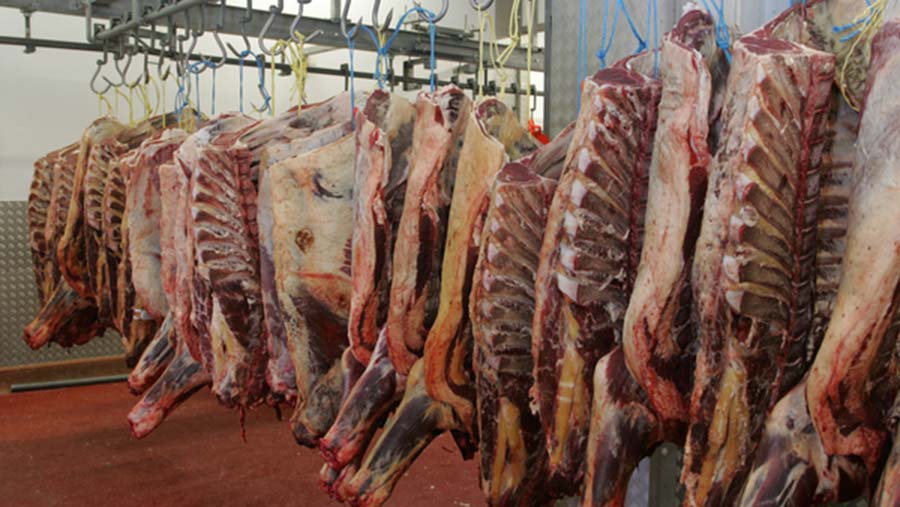Auctioneers dig in heels over new beef spec rules
 ©Tim Scrivener
©Tim Scrivener Auctioneers say they will refuse to reveal the number of times an animal has moved during its lifetime until they get more detailed guidance from the major abattoirs.
Beef processor Dunbia revealed last week that it will introduce a cattle specification on 16 November which includes a “four residencies” limit on stock.
This means beef producers who supply cattle that have already been moved more than three times will face penalties when they come to sell them.
See also: Farmer fury as processor gives two week’s notice of spec changes
The move has angered the NFU, which has said introducing such a change at such short notice is unfair to people who have been rearing cattle in good faith to a spec that no longer exists.
Chris Dodds, executive secretary of the Livestock Auctioneers Association, said finishers would understandably want to know how many times the stores they were buying had moved during their lifetime so as to avoid a deduction when they sold them on to the abattoir.
“But we need to know what the abattoirs consider a ‘movement’ to be,” he added.
“We know that moves through markets and to abattoirs don’t count, but is the move to a different County Parish Holding number the same as a change in keepership?
“Auctioneers are keen to disseminate information that adds value to an animal at the time of sale, and to assist buyers around the ring in determining whether the livestock they are bidding on are suitable for their purposes.
“But they can’t afford to provide information that is potentially different to what’s looked for further down the chain, and that leads to a deadweight deduction at the abattoir.
“Until we get clarity, marts will not announce the number of moves animals have completed.
“Abattoirs need to communicate their needs clearly and consistently as the marts are not prepared to be responsible for potential charges or compensation payments due to errors outside of their control.”
A spokesman for Dunbia said the company declined to comment at this stage.
